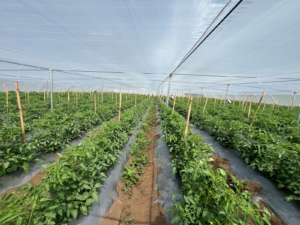
The World Bank (WB) has taken a decisive step towards environmental financing by announcing that, by 2025, 45% of its funds will be earmarked for green projects. This strategy is part of its global commitment to address the climate crisis and reduce the environmental impact of human activities. By focusing on climate action, the WB aims not only to mitigate the effects of climate change, but also to support countries in developing sustainable energy, economic and community practices.

In 2024, the World Bank has already committed US$42.6 billion in climate finance, consolidating its role as one of the main investors in green projects. These resources were earmarked for the transition to renewable energy, the creation of more resilient infrastructure, and the adaptation of communities to the effects of climate change. The goal is to generate a significant and lasting impact, promoting sustainable development that balances economic growth with environmental protection.
The World Bank’s focus on green finance responds to the urgency of adopting more ambitious measures in the face of climate challenges. The institution recognizes that developing countries are particularly vulnerable to the impacts of climate change, such as droughts, floods and extreme events. For this reason, a significant portion of the funds is earmarked to support these nations in their adaptation and climate resilience, ensuring that they can meet environmental challenges without compromising their economic development.

The transition to a green and sustainable economy not only seeks to mitigate climate change, but also to take advantage of the opportunities offered by innovation in renewable energies. Projects in solar, wind and other clean energy sources are being implemented to gradually replace the use of fossil fuels. This shift not only reduces carbon emissions, but also promotes countries’ energy independence and contributes to job creation in sustainable sectors. By committing 45% of its financing to green projects by 2025, the World Bank is reinforcing its role in the fight against climate change globally. By working together with governments and other stakeholders, the institution seeks to bring about significant change in the way resources are managed and economies are driven.







